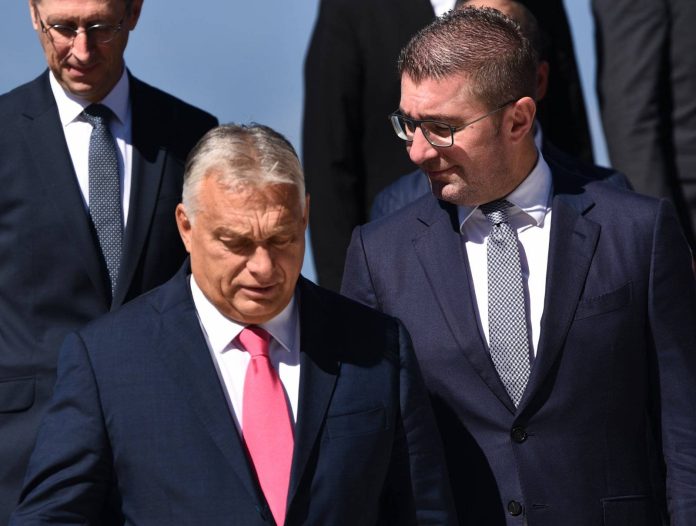During his visit to North Macedonia, Hungarian Prime Minister Viktor Orbán announced a plan to unblock Skopje’s accession to the EU by the end of the year, bne IntelliNews informed.
Orbán did not disclose specific details of the plan, but announced his willingness to act as a mediator to facilitate dialogue between the two countries. The initiative was announced during a press conference with North Macedonian Prime Minister Hristijan Mickoski in Ohrid on 27 September.
The Hungarian leader arrived in the Balkan country on 26 September on a two-day visit aimed at strengthening economic and cultural relations. He established strong ties with North Macedonia’s ruling VMRO-DPMNE (The Internal Macedonian Revolutionary Organisation – Democratic Party for Macedonian National Unity) party.
One of the reasons why I am here in Ohrid is to seek a solution to the dispute with Bulgaria.
Bulgaria’s demands were a major obstacle to North Macedonia’s EU accession, as Sofia blocked the progress in 2020 due to historical and cultural disputes. However, the blockade was lifted in 2022 after an EU-brokered compromise. The bloc demanded that the country amend its constitution to recognise Bulgarians as a minority.
However, tensions between the two countries remain. North Macedonia faces difficulties in implementing the constitutional changes, mainly due to opposition from the VMRO-DPMNE party.
Despite Orbán’s optimism, Bulgarian officials flatly refused his offer to mediate the ongoing tensions between Skopje and Sofia. Foreign Minister Ivan Kondov stated that his country did not need mediators as the EU framework agreement with North Macedonia required constitutional amendments.
EU priorities
Orbán also expressed his concern about the EU’s handling of the situation. He said the recent separation of Albania’s EU accession process from that of North Macedonia was the bloc’s “huge mistake.”
Given Hungary’s role as the EU chair, it is only natural that this topic is at the forefront of our discussions today [September 27]. Hungary’s stance is clear: the stability of the Western Balkans and the region’s integration into the EU are of paramount importance.
The prime minister criticised the bloc for accelerating the EU accession processes of Ukraine and Moldova while ignoring countries such as North Macedonia, which have been working on accession for years. Formerly known as Macedonia, it has been an EU candidate since 2005. During his visit, he expressed gratitude for the support in Hungary’s fight against illegal migration. He also reaffirmed his commitment to strengthening bilateral political and economic ties.
We will never forget North Macedonia’s support in our fight against illegal migration.
In response, Mickoski said that Hungary was a strategic ally of North Macedonia. He also noted the importance of strategic projects such as the North-South transport and energy corridors linking the Balkans with Budapest.
